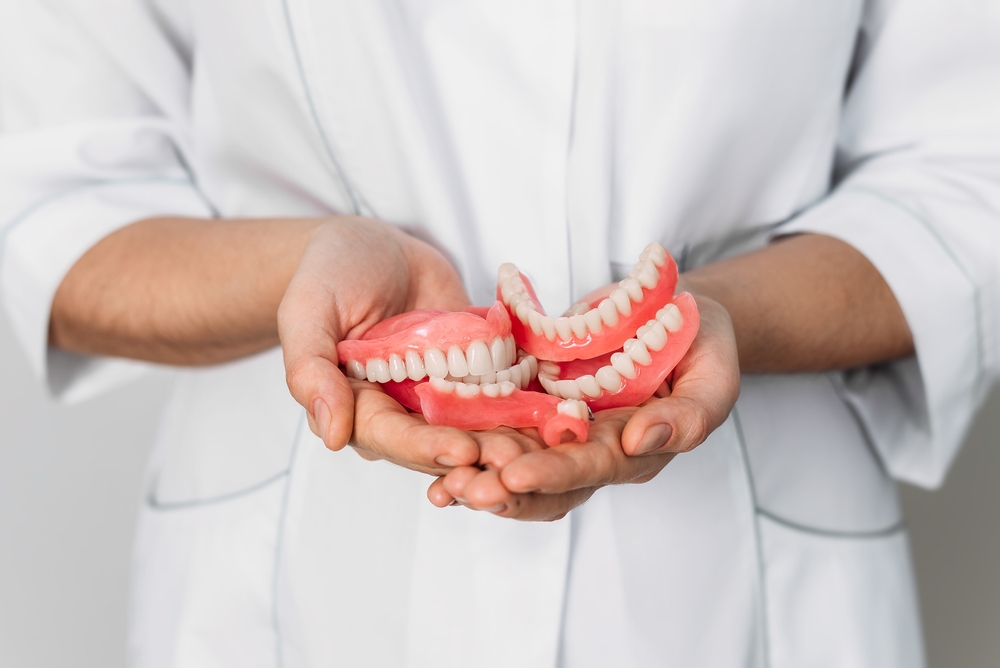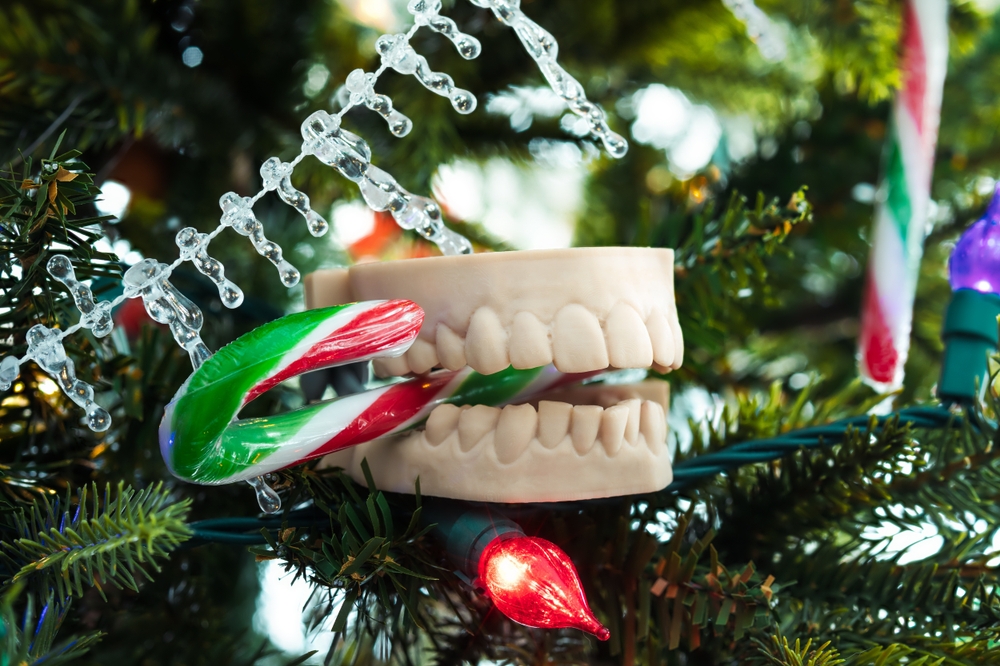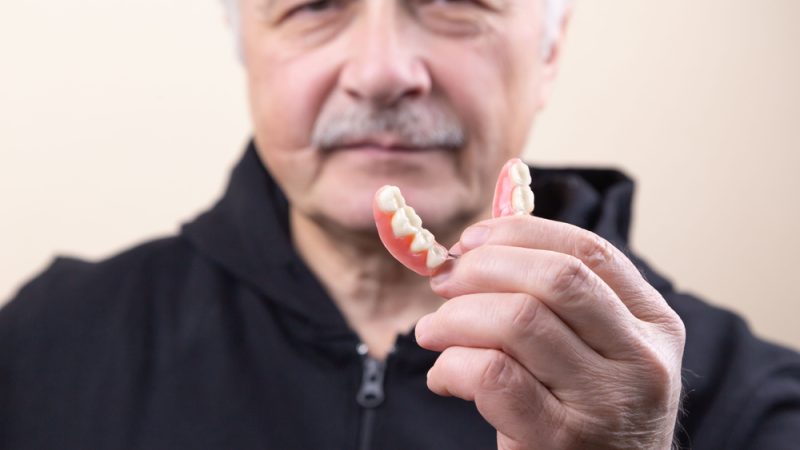One of the main reasons for wearing dentures is to rediscover the joys of eating! However, this newfound freedom comes with a few initial compromises; indeed, there are some things you need to know before you enjoy your first meal!

What you can and can’t do — or eat — with dentures
First, it’s important to remember that eating with dentures can be more difficult in the beginning. Rest assured; this is perfectly normal. The muscles in your mouth need time to readjust!
It’s therefore important to avoid the urge to remove your dentures when you eat. Just because it seems easier at first doesn’t mean it’s a good idea!
What’s more, you should choose your food very carefully in the first few months of wearing your dentures. As with natural teeth, some foods are simply more difficult to eat.
Foods with a fibrous texture
Avoid foods with a fibrous texture, such as lettuce, celery and red meat, as they tend to get stuck in or to your dentures.
While cooking these foods can help, it’s not a perfect solution. Unlike a piece of celery, filet mignon doesn’t get easier to chew with dentures when cooked for a longer amount of time!
Sticky foods
Eating sticky foods with new dentures can cause them to move out of place. So, avoid eating fresh bread with your new dentures and go for a lightly toasted slice instead.
Like bread, candy, especially caramel and chewing gum, should be avoided in the first few weeks while you get used to your dentures. If you want to eat caramels, choose small pieces and let them melt on your tongue.

Soft foods
When we think of soft foods, we immediately picture pureed vegetables. However, there are plenty of soft foods that tend to be overlooked! Here are some suggestions of foods you can eat with your new dentures.
- Soups
- Fish
- Cheese
- Ground meat
- Soft fruits
- Cooked vegetables
- Eggs
- Pasta
- Smoothies
- Poutine (but not too often!)
- Ice cream and sorbet
- Oatmeal
When can you go back to a regular diet?
Some dental health professionals suggest waiting 10 to 90 days. While this may be the case for most people, it’s important to go at your own pace and eat according to your comfort level!
It’s also essential to slice food thinly, take small bites and chew slowly. Over time, you’ll start to feel more and more comfortable eating with your dentures.
Questions about your dentures?
Are you having a hard time eating with dentures? Do you need help in your quest to eat without pain or discomfort? Don’t hesitate to contact the Sourire Candiac Denturologistes team!

